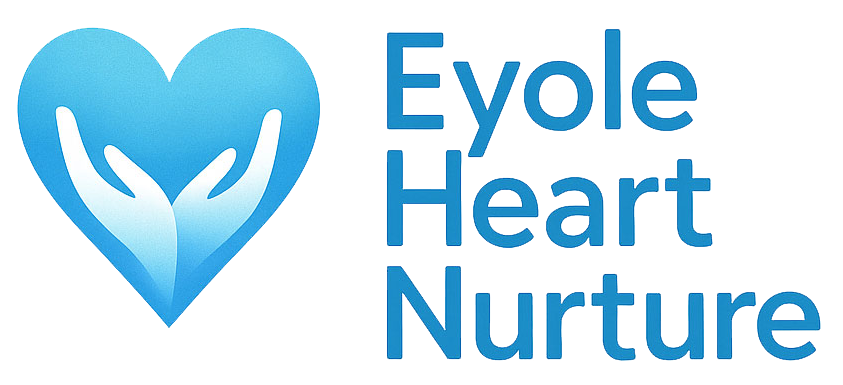Have you noticed a persistent cough that won’t seem to go away, even after treatment? You might wonder if it’s just a lingering cold or something more serious. Consider James, a devoted husband and father, whose chronic cough was initially dismissed as asthma. Yet, his persistent symptoms and growing fatigue led to a heart failure diagnosis.
What is Heart Cough?
A heart cough is a persistent cough caused not by lung infection or allergies but by heart failure. When the heart muscle weakens or stiffens, it can no longer pump blood effectively. This causes fluid to build up in the lungs, a condition known as pulmonary edema. To clear this excess fluid, your body triggers a persistent cough.
Dr. Miriam Jacob, a heart failure specialist, explains: “Patients often come to me after months of being treated for respiratory issues like asthma or bronchitis, only for us to discover their symptoms point to heart failure.” This cardiac cough can be wet, producing white or pink-tinged mucus, or sometimes dry, depending on the situation and medications.
Symptoms to Notice
If your cough is heart-related, it may be accompanied by:
- Shortness of breath, worsening with exercise or lying down
- Wheezing or a bubbling sensation in the chest
- Cough with white or pink sputum
- Fatigue, swelling in the legs or abdomen, and unexplained weight gain
These symptoms reflect the underlying struggle of your heart and the fluid imbalance it causes.
When your body struggles, remember the spiritual strength available to you. Scripture offers comfort: “The Lord is close to the brokenhearted and saves those who are crushed in spirit.” (Psalm 34:18) Caring for your heart is not just physical; it’s spiritual. God knows your pain and walks with you in hope and healing.
Through medical treatment and prayer, James experienced renewed strength and peace, reminded by Philippians 4:13, “I can do all things through Christ who strengthens me.”
What Can You Do?
If you have a persistent cough, especially with the symptoms described, take it seriously. Visit your healthcare provider and consider taking our free heart health test at EyoleHeartNurture.com. Early detection can save lives and restore both physical and spiritual vitality.
Frequently Asked Questions
- How to know if a cough is heart-related?
A heart-related cough, often called a cardiac cough, is typically persistent and may produce white or pink-tinged mucus. It often occurs alongside symptoms such as shortness of breath, swelling, fatigue, and wheezing. If your cough does not improve with standard respiratory treatments and is accompanied by fluid retention or exercise intolerance, it could be heart-related. Evaluation by a healthcare provider with tests like an echocardiogram is recommended. - What are three early warning signs your heart is failing?
Three early warning signs of heart failure include persistent coughing or wheezing (especially with pink or blood-tinged mucus), shortness of breath that worsens with activity or lying flat, and swelling in the legs, ankles, or abdomen. - How do you know if your heart is healthy?
A healthy heart usually means no symptoms such as unexplained fatigue, chest pain, persistent cough, or swelling. Regular check-ups, normal heart rhythm on ECG, and normal heart function on echocardiogram help confirm heart health. - Is coughing a symptom of heart valve problems?
Yes, heart valve problems can cause fluid to back up in the lungs, leading to coughing and shortness of breath. This is due to the heart’s impaired ability to pump blood properly, which can cause pulmonary congestion. - What does a heart failure cough sound like?
A heart failure cough can be wet and productive with white or pink mucus. Sometimes it can be dry, especially if caused by certain heart failure medications like ACE inhibitors. - What are the first signs of heart valve problems?
Early signs include breathlessness, coughing, fatigue, palpitations, and swelling. These symptoms occur due to altered blood flow caused by the malfunctioning valve. - How can I clean my heart valve naturally?
There is no direct natural cleaning for heart valves. However, maintaining heart health through a balanced diet, exercise, managing blood pressure and cholesterol, and avoiding smoking supports valve health. - At what age do heart valve problems start?
Heart valve problems typically develop in middle age or later but can occur earlier due to congenital issues or infections. - What are the four stages of congestive heart failure?
The stages range from high risk with no symptoms (Stage A), structural heart disease without symptoms (Stage B), structural disease with symptoms (Stage C), to advanced disease requiring specialized interventions (Stage D). - Why am I coughing so much but not sick?
Persistent cough without typical cold symptoms could be a cardiac cough caused by heart failure or side effects of heart medication (e.g., ACE inhibitors). If unexplained, it should be evaluated medically.





